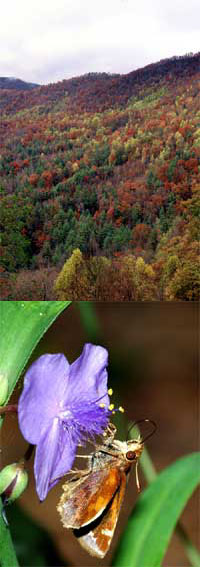Future Directions
Basic Information

More Information
- Ecological Research Program Factsheet (PDF) 2 pp., 650KB, About PDF
- Draft EPA SAB Report
Valuing the Protection of Ecological Systems and Services (PDF)
395 pp., 1.7MB, About PDF
Understanding how people are harmed when local ecosystems are degraded is becoming critical to environmental decision-making. Many changes are, for all practical purposes, irreversible and if the risks from allowing degradation to progress unchecked are not effectively evaluated, the opportunity to cost-effectively preserve ecosystems goods and services for future generations may be lost.
The challenge in providing information for decision-making is to capture the effects of changing conditions on the beneficial outcomes that matter to people, so that risks and trade-offs can be evaluated. ReVA, as a component of the Ecological Research Program (ERP) of the US EPA Office of Research and Development, is working towards communicating the best available scientific information in a form that will aid policy and decision-making.
ReVA is moving that goal forward by identifying, mapping, quantifying and valuing the ecosystem goods and services that provide benefits to people. Ecosystem services measure the public goods that are typically undervalued in assessments used for decision-making.
By bringing together the best available science and developing new studies, ReVA, in concert with other parts of the ERP, strives to contribute tools and information to managing the human actions that cumulatively pose risks to the naturally-derived goods and services on which we depend. Ecosystem services have been broadly defined as “the benefits people obtain from ecosystems” (Millennium Ecosystem Assessment ![]() ) and are derived from natural functions that provide food, climate regulation, flood control, species habitat, recreational opportunities and aesthetic amenities, among many other services.
) and are derived from natural functions that provide food, climate regulation, flood control, species habitat, recreational opportunities and aesthetic amenities, among many other services.
Since ecosystem services provide benefits to users over different spatial extents and timeframes, ReVA’s goal has been and will continue to be to support decision-making at scales relevant to a range of decisions.
Different types of decision-makers (such as homeowners and businesses, local government agencies), considering different types of services, need information at a range of spatial and temporal scales.
The ecosystem services concept provides a framework for integrating research across disciplines and enhancing interaction among decision makers, stakeholders and researchers.
Communities can’t manage for risk if they don’t understand that risk is generated. Ecosystem services measures will be used to communicate risk, support community goals of sustainable management of resources, and support communities in evaluating trade-offs.
Goals of Ecosystem Services and Valuation
- Promote sustainable and efficient use of ecosystem services.
- Evaluate links between changes in ecosystem condition and human well-being.
- Describe ecosystem changes in ways that resonate with community members.
- Evaluate trade-offs of land use management and policy.
- Identify thresholds in production of services, risks of irreversible loss.
- Develop and test incentives and regulations to efficiently manage scarce resources.
- Integrate science across disciplines to communicate effectively with policymakers and support their decision-making.
- Ensure land management is consistent with community goals.
![[logo] US EPA](../gif/logo_epaseal.gif)